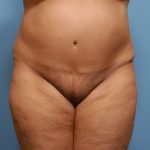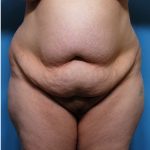As of Jan. 1 this year, a new law took effect in California whose intent is to provide greater safety for patients undergoing plastic surgery.
Known as the “Donda West Law”, it is named after rap artist Kanye West’s mother who died a day after cosmetic surgery in 2007. According to reported autopsy results, Donda West died of pre-existing coronary artery disease and other unspecified postoperative events a day after she had undergone a tummy tuck, breast surgery and liposuction. The exact details of these events is not known by this writer but the surgeon who performed this surgery has apparently surrendered his medical license, suggesting there are deeper issues at work here as well.
This new law requires a physical examination within 30 days before a procedure and clearance from a doctor, nurse practitioner or physician’s assistant before cosmetic surgery is performed. In essence, this makes it illegal for doctors to perform elective cosmetic surgery without a physical examination and clearance from a medical professional.
This new law will actually change very little in most plastic surgeon’s practices because reputable plastic surgeons do take a medical history and perform a physical examination before any major procedure. But it does bring to light and reinforce several important concepts about cosmetic surgery and a patient’s preparedness for it.

Secondly, while not every procedure needs laboratory testing beforehand, many do and that expense should be seen as just part of the procedure. In an otherwise healthy person (no known medical problems) under age 50, no laboratory testing is needed. This will change based on if the patient has medical problems. For any patient over 50 years of age, preoperative labs are needed and include blood work and and EKG. More may be needed if other medical problems warrant it.
Lastly, be concerned if this information is not required of you before any major cosmetic surgery. Taking a medical history and filling out such on forms is almost always the very first step you do even before you ever see a plastic surgeon in their office.
While the potential changes that cosmetic surgery can create can be somewhat euphoric when one is pondering the procedure(s), the most important consideration is your safety. If a plastic surgeon suggests that you should not have the operation or recommends a less extensive approach than you want, you would be wise to heed those suggestions. This is usually an issue in major body contouring surgery. In some cases, doing the procedure in stages is both easier and safer for you. It may cost somewhat more to do so and be an additional inconvenience to your life, but that is a small sacrifice to pay for your health.
Dr. Barry Eppley
Indianapolis, Indiana



